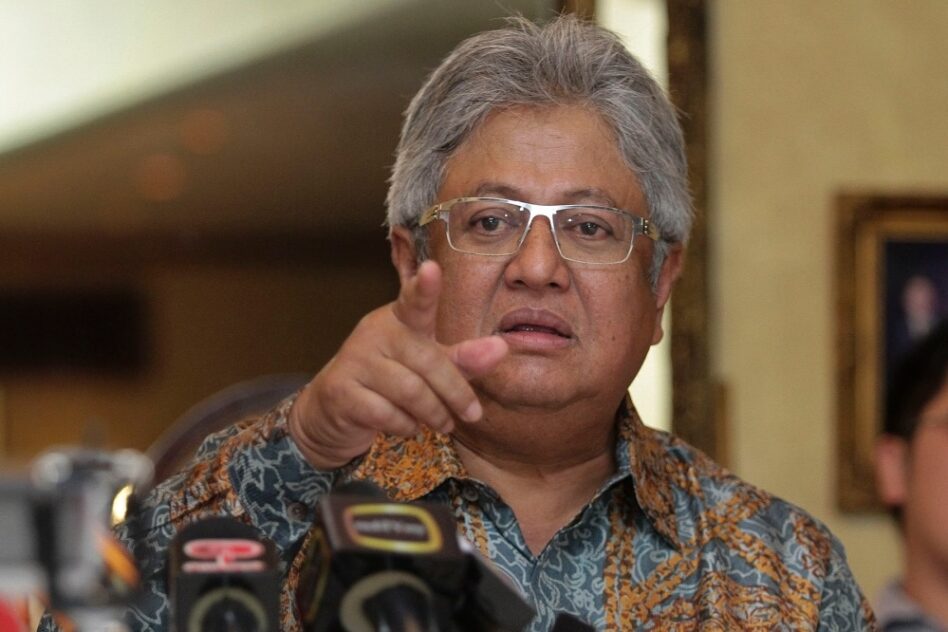MANY people use festive celebrations as an excuse to overindulge in high-fat, high-sugar foods, believing they can offset the damage later with extreme dieting. This cycle strains the body and places unnecessary stress on the heart.
Inconsistent eating habits, lack of physical activity, and delayed health screenings during celebrations can significantly increase the risk of cardiovascular disease, warned CVSKL consultant cardiologist Dr Wan Faizal Wan Rahimi Shah.
“Rather than relying on quick fixes, Malaysians must adopt a more balanced, long-term approach to heart health, even during the most joyous occasions,” he added.
Dr Wan Faizal went on to explain that during celebrations, people often consume excessive high-fat, high-sugar, and high-sodium foods while reducing physical activity. This can lead to weight gain, elevated cholesterol, and increased blood pressure, raising the risk of heart disease.

Fluctuating between feasting and strict dieting can also be harmful, as sharp swings in cholesterol, blood sugar, and blood pressure stress the cardiovascular system, increase inflammation, and strain heart function.A Public Perception Survey on Health conducted by the Malaysian Medical Association and Novartis Malaysia revealed a concerning gap between perceived and actual health.
While 98% of respondents believed they were in good or average health due to exercise and diet, only 66% underwent annual health screenings despite 85% having done so before.
Additionally, three in four Malaysians were diagnosed with cardiovascular-related conditions, including high cholesterol (37%), high blood pressure (29%), and diabetes (13%).
“Cardiovascular disease is Malaysia’s top killer, with non-communicable diseases (NCDs), particularly atherosclerotic cardiovascular disease (ASCVD), causing 72% of premature deaths,” continued Dr Wan Faizal.
“Alarmingly, heart disease is affecting Malaysians at a younger age, with 25% of cases occurring in individuals under 50.
“Poor dietary habits and high LDL-C levels affect 41% of Malaysian adults, significantly contributing to heart disease rates. Managing LDL-C, or ‘bad cholesterol’ is crucial for heart health.”

Dr Wan Faizal further emphasised that reducing LDL-C by just 1 mmol/L can lower the risk of cardiovascular events by 22%. This requires a combination of lifestyle changes and medical intervention.
“Cholesterol-lowering treatments have advanced significantly, offering greater convenience, with some therapies requiring only twice-a-year administration,” Dr Wan Faizal remarked.
“Many Malaysians postpone or skip routine health check-ups during festive periods, assuming they can ‘get back on track’ later. However, early detection is key to preventing serious heart complications.”
Patients should take charge of their heart health by speaking with their doctors, asking questions and using technology to track their progress. Tools like the cardiovascular risk calculators on platforms such as Unblocked can help individuals better understand their risk and take proactive steps to stay healthy.
Dr Wan Faizal said patients should use the post-festive season as an opportunity to assess heart health as it reflects actual cardiovascular conditions rather than temporary fluctuations.
“The post-celebration period is when the effects of indulgence are most evident, providing a more accurate picture of cholesterol levels, blood pressure, and overall heart health,” he continued.
“By undergoing health assessments, individuals can detect early warning signs and take corrective measures before serious complications arise.”
However, self-assessment alone is not enough. Regular screenings, stress tests, and medical evaluations should be a priority—even during celebrations.

These tests provide crucial insights into cardiovascular health and help individuals take timely action to control cholesterol and other risk factors.
“Intermittent fasting can also be beneficial for heart health when done correctly. It has been shown to improve growth hormone levels, regulate glucose, and enhance insulin response—provided that balanced meals are consumed during eating periods,” stated Dr Wan Faizal.
“By adopting sustainable eating habits, individuals can better manage their cholesterol and overall cardiovascular health. Incorporating intermittent fasting into a heart-conscious lifestyle can complement other heart health strategies, reinforcing long-term well-being.”
For those newly diagnosed with high cholesterol, Dr Wan Faizal offered reassurance: “Cholesterol management is a long-term process. Patients should work closely with their healthcare providers to find the right treatment plan, whether it involves lifestyle adjustments, medication, or newer treatment options that provide effective and sustained cholesterol control.”
With heart disease remaining the nation’s leading cause of death, Malaysians must take proactive measures.
By making informed choices during festive seasons and beyond, individuals can enjoy celebrations while keeping their hearts healthy for years to come. – April 17, 2025









